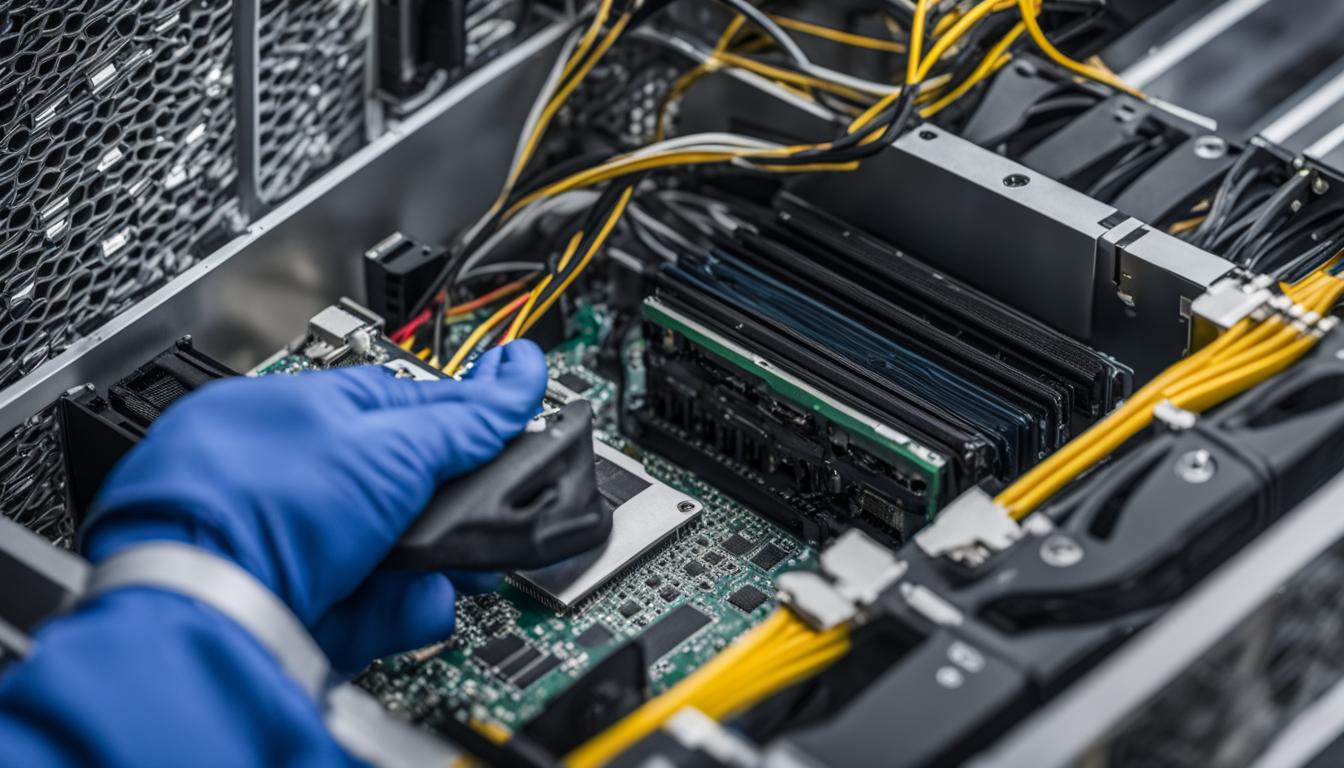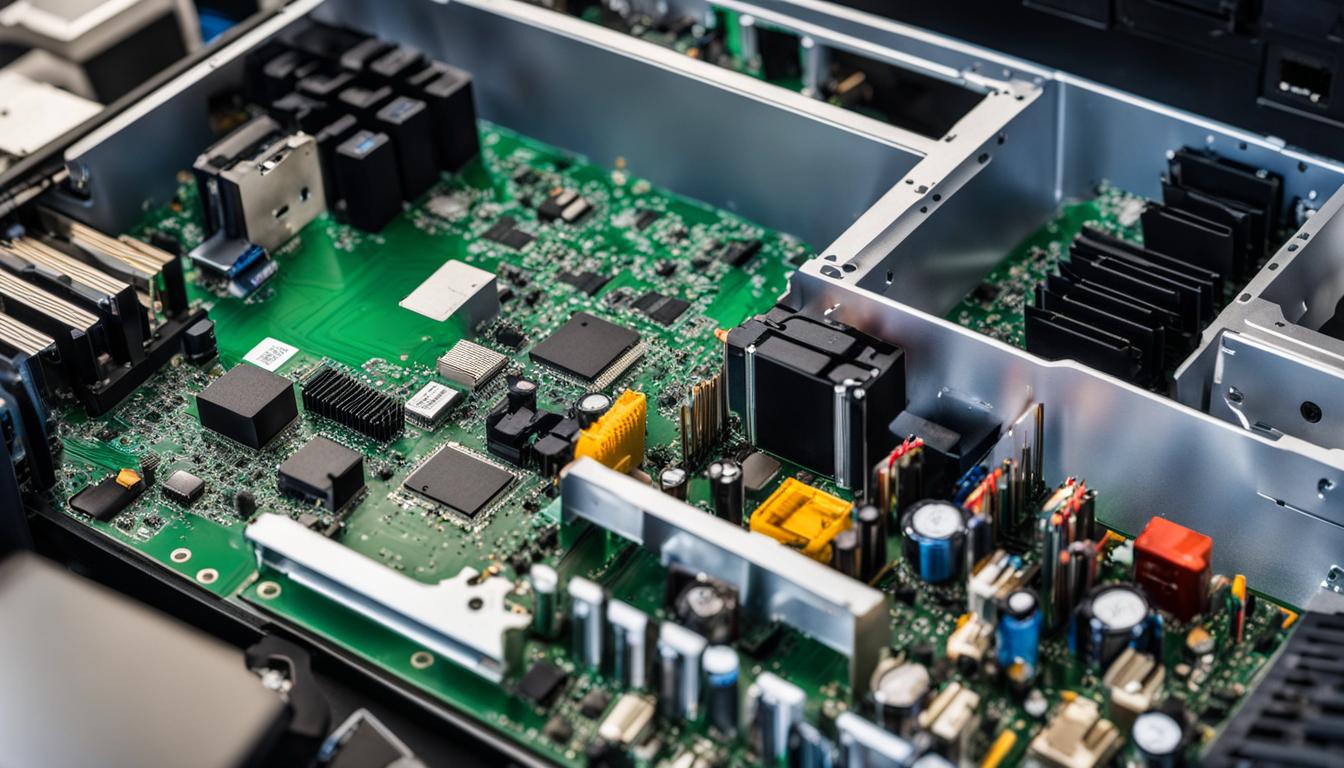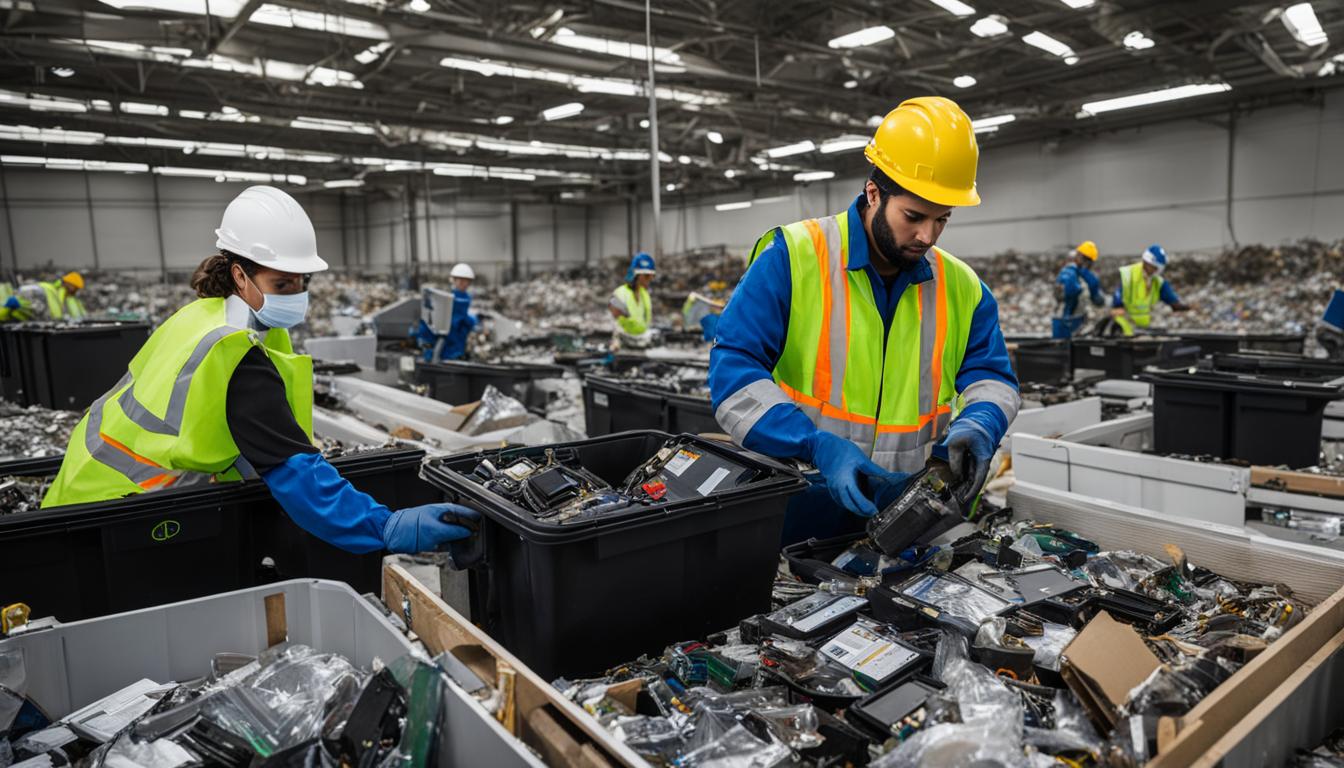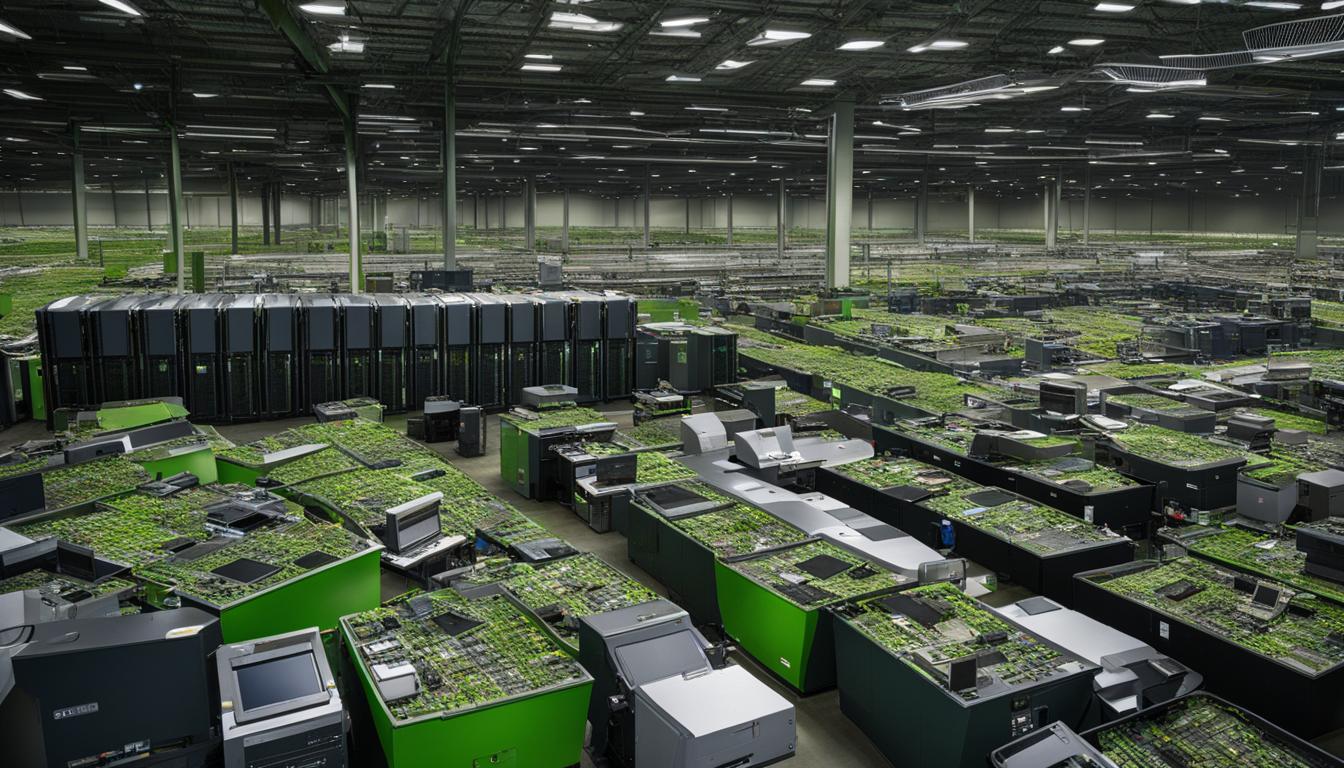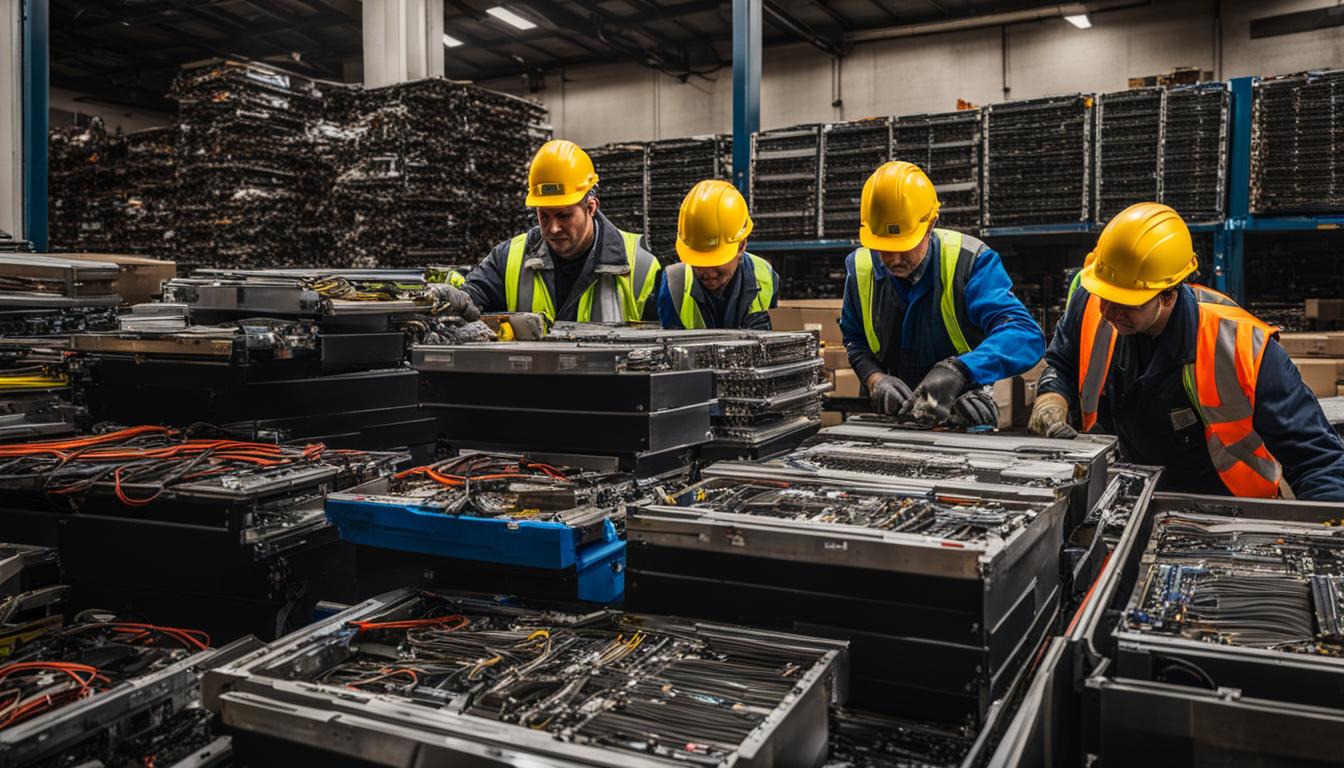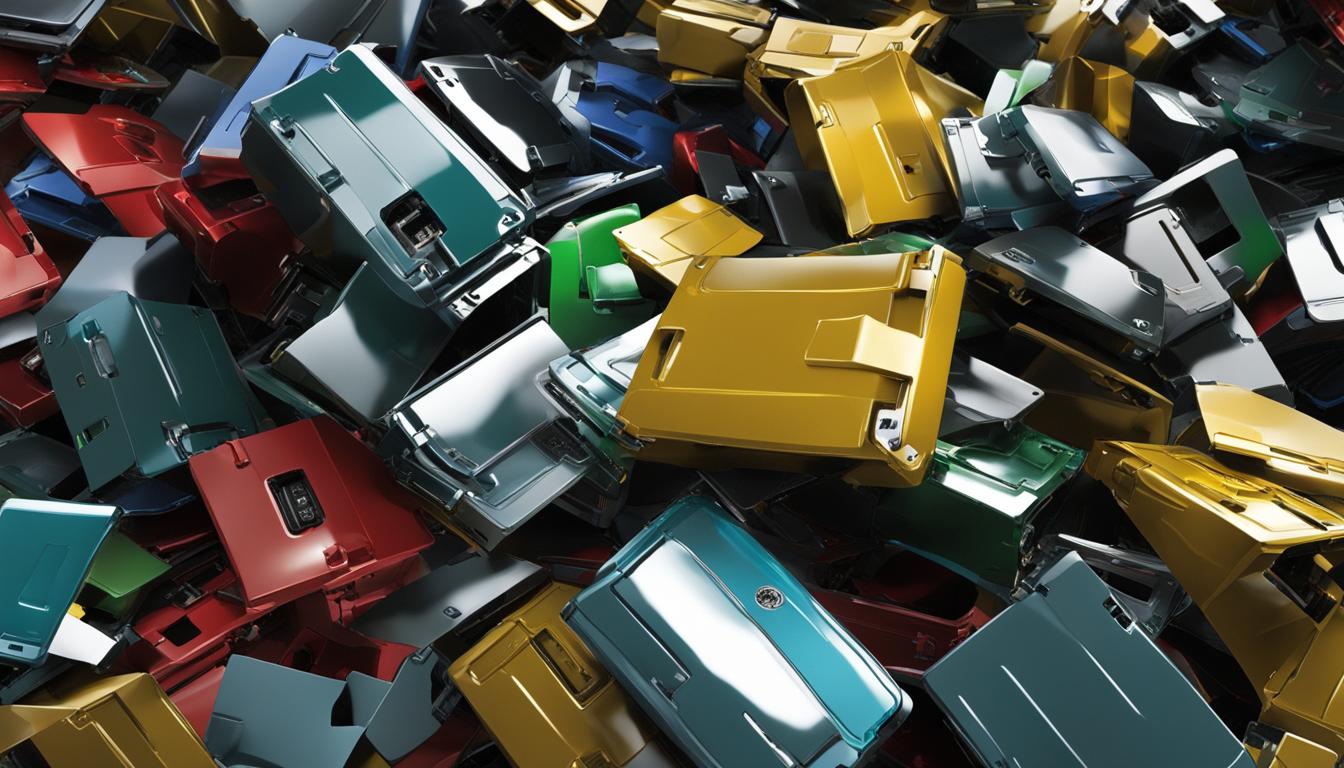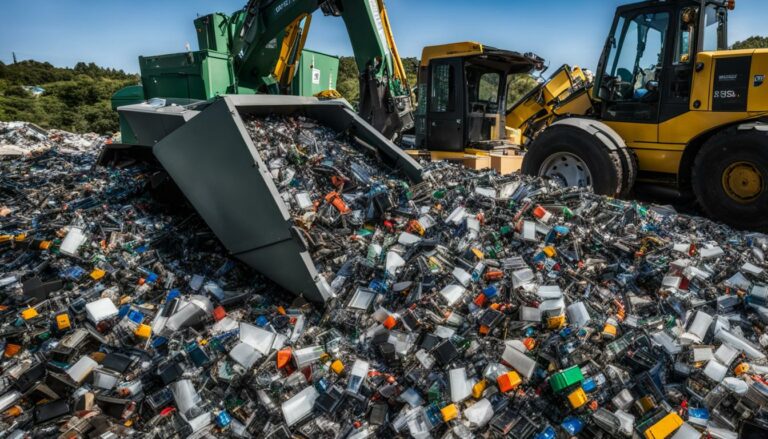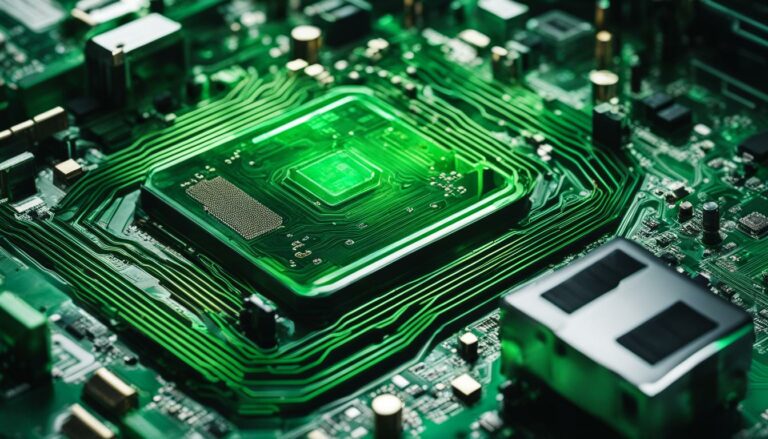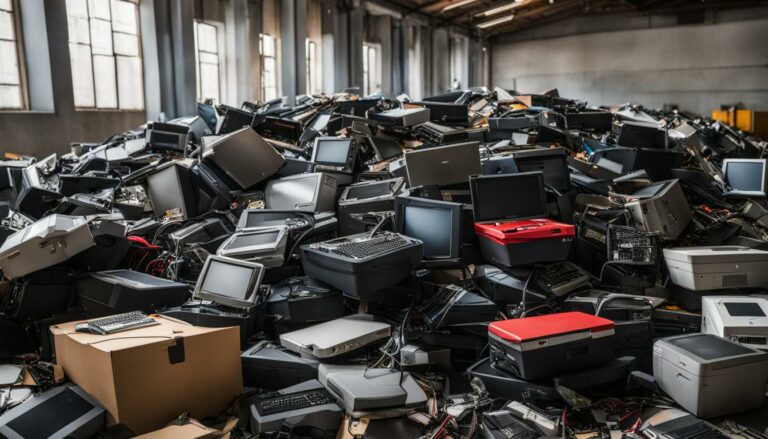The Dangers of DIY Server Recycling
DIY Server Recycling can pose potential hazards and risks, particularly when it comes to data security. Companies often have a large amount of obsolete hardware that needs to be disposed of responsibly. Current legislation prevents companies from disposing of this hardware in landfill sites due to the presence of harmful materials such as lithium and mercury. It is crucial for companies to ensure their hardware is recycled in an environmentally and ethically responsible manner, while also taking necessary measures to protect sensitive data.
Key Takeaways
- Proper server disposal is vital to prevent environmental damage.
- Data wiping is essential to protect sensitive information during the server recycling process.
- Obsolete servers can be repurposed or donated to avoid unnecessary waste.
- Improper server recycling can have severe environmental consequences.
- Consulting professional server recycling companies ensures compliance and best practices.
The Importance of Data Wiping in Server Recycling
When it comes to server recycling, one crucial step that must not be overlooked is data wiping. Data wiping ensures that all previously saved files and sensitive information on the server’s hard drive or storage devices are permanently deleted, making them unrecoverable. Simply reinstalling the operating system is not enough to guarantee data security. To protect your data and prevent any unauthorized access, it is essential to utilize professional data wiping tools.
Professional data wiping tools, such as Blancco, approved by the Ministry of Defence, offer comprehensive and secure data erasure solutions. These tools go beyond simple deletion and overwrite every sector of the hard drive multiple times, effectively eliminating any trace of the previous information. While free versions of data-wiping software are available, it’s important to note that they may not be as thorough or reliable as the paid versions.
Data wiping plays a significant role in the server recycling process. By using proper data wiping techniques, companies can ensure that sensitive data remains protected throughout the disposal and recycling process. It not only safeguards valuable information but also helps organizations comply with data protection regulations.
The Benefits of Data Wiping in Server Recycling:
- Protects sensitive information from unauthorized access
- Ensures compliance with data protection regulations
- Provides peace of mind during the server disposal process
- Prevents data breaches and identity theft
“Data wiping plays a significant role in protecting sensitive information during the server recycling process. By ensuring all data is permanently deleted, companies can prevent data breaches and safeguard sensitive information from falling into the wrong hands.”
| Data Wiping Method | Advantages | Disadvantages |
|---|---|---|
| Professional Data Wiping Software | Thorough and reliable data erasure | Cost of software |
| Free Data Wiping Tools | Accessible and budget-friendly | Potential limitations in thoroughness |
Data wiping should be an integral part of every server recycling process. By utilizing professional data wiping tools, companies can protect their sensitive information, comply with data protection regulations, and prevent potential data breaches.
Responsible Disposal and Repurposing of Obsolete Servers
When it comes to obsolete servers, responsible disposal and repurposing are essential for both environmental sustainability and minimizing electronic waste. Instead of simply discarding old servers, there are several options available to companies that promote eco-friendly server recycling and extend the life of their hardware.
One option is to allow employees to repurpose obsolete hardware for personal use. This can be done by offering the equipment for a small fee or as a donation to a charity. However, it is crucial to ensure that all data is securely wiped before repurposing the hardware to protect sensitive information from falling into the wrong hands.
Another approach is to donate equipment to educational institutions, community refurbishment workshops, or non-profit organizations. By doing so, companies can support educational initiatives and provide resources to those in need. Charities like Computers4Africa accept all forms of hardware and distribute them to families in Africa, ensuring that the equipment is put to good use instead of ending up in a landfill.

For companies looking for professional assistance, hardware servicing companies can be contracted to manage the repurposing and refurbishment process. These companies have the expertise to assess the hardware, perform necessary repairs or upgrades, and ensure that it is ready for its new purpose. This not only extends the lifespan of the equipment but also reduces the overall electronic waste generated by the company.
In conclusion, responsible disposal and repurposing of obsolete servers are crucial for eco-friendly server recycling. By exploring options such as employee repurposing, donations to educational institutions, or engaging hardware servicing companies, companies can contribute to a sustainable future while minimizing electronic waste.
The Environmental Impact of Improper Server Recycling
Improper server recycling can have devastating consequences for the environment. Discarded computers and electronic waste contribute significantly to the overall waste problem, with approximately 20 million computers discarded in the United Kingdom every year. Computer waste contains toxic elements such as cadmium, nickel, mercury, and lead, which can be harmful to both humans and the environment.
When servers are not recycled properly, these hazardous materials can seep into the ground and water systems, polluting the soil, rivers, and oceans. The toxins can harm plant and animal life, disrupting ecosystems and causing long-term damage to the environment. Additionally, the production and disposal of electronic waste contribute to greenhouse gas emissions, exacerbating climate change.
To mitigate the environmental impact of improper server recycling, it is crucial to adopt eco-friendly practices. Recycling servers in a responsible manner allows for the recovery of valuable resources like precious metals and rare earth elements. Proper extraction and disposal of hazardous materials prevent the release of toxins into the environment.
The Importance of Responsible Server Recycling:
- Reduce pollution: Recycling servers prevents hazardous materials from contaminating the environment, reducing pollution of the land, water, and air.
- Conservation of resources: Server recycling allows for the recovery of valuable materials, reducing the need for raw material extraction and preserving natural resources.
- Energy savings: Recycling servers reduces the energy required for the production of new equipment, leading to overall energy savings and a smaller carbon footprint.
- Economic benefits: Proper server recycling supports the growth of the green economy by creating jobs and promoting sustainable business practices.
Improper server recycling poses a significant threat to the environment. By adopting responsible practices, we can mitigate these risks and contribute to a healthier planet for future generations.
| Environmental Impact | Eco-friendly Server Recycling |
|---|---|
| Contamination of soil, water, and air | Prevention of hazardous material release |
| Disruption of ecosystems | Conservation of resources |
| Contribution to climate change | Reduction of greenhouse gas emissions |
| Waste of valuable resources | Recovery of precious metals and rare earth elements |
Choosing responsible server recycling methods and partnering with trusted recycling companies can help minimize the environmental impact of electronic waste. By doing our part to recycle servers properly, we can protect the environment and create a more sustainable future.
Conclusion
DIY Server Recycling can be risky if not done properly. To ensure safety and data security, companies should focus on responsible disposal, data wiping, and repurposing of old servers. It is essential to comply with waste disposal regulations and use professional data wiping tools to prevent unauthorized access to sensitive information. By adopting eco-friendly server recycling practices, companies can help reduce environmental impact and contribute to a sustainable future.
When it comes to DIY Server Recycling, it’s crucial to follow server recycling tips and best practices. Instead of discarding old servers in landfill sites, companies should explore the option of repurposing or donating the equipment. Before repurposing, ensure all data is securely wiped to protect sensitive information.
Remember, always consult with reputable server recycling companies to ensure compliance and receive expert guidance throughout the recycling process. By responsibly recycling servers, companies can not only protect data security but also contribute towards creating a greener and more sustainable world.
FAQ
What are the risks of DIY server recycling?
DIY server recycling can pose potential hazards and risks, particularly when it comes to data security. There is a risk of sensitive information being accessed by unauthorized individuals if proper data wiping measures are not taken.
Is reinstalling the operating system enough to ensure data is permanently deleted?
No, simply reinstalling the operating system is not enough to ensure all files and data are permanently deleted. Professional data wiping tools, like Blancco, approved by the Ministry of Defense, are necessary to ensure that all previously saved files on the hard drive or any other storage device are overwritten and made unrecoverable.
Are there free versions of data-wiping software available?
Yes, there are free versions of data-wiping software available, although they may not be as thorough as the paid versions. It’s important to choose a data wiping tool that meets your specific needs and ensures data security.
What options do companies have for responsible disposal and repurposing of old servers?
Companies have various options for responsible disposal and repurposing of old servers. These include allowing staff to take obsolete hardware for home use, donating equipment to schools or community refurbishment workshops, or contracting hardware servicing companies to manage repurposing and prolonging the life of equipment.
What are the environmental consequences of improper server recycling?
Improper server recycling can have severe environmental consequences. Discarded computers and electronic waste make up a significant portion of waste, containing harmful elements such as cadmium, nickel, mercury, and lead. When not recycled properly, these toxic materials can seep into the ground and water systems, causing environmental damage.
How can companies ensure safety and data security in server recycling?
To ensure safety and data security, companies should focus on responsible disposal, data wiping, and repurposing of old servers. It is essential to comply with waste disposal regulations and use professional data wiping tools to prevent unauthorized access to sensitive information. Consulting with reputable server recycling companies can help ensure compliance and best practices.


